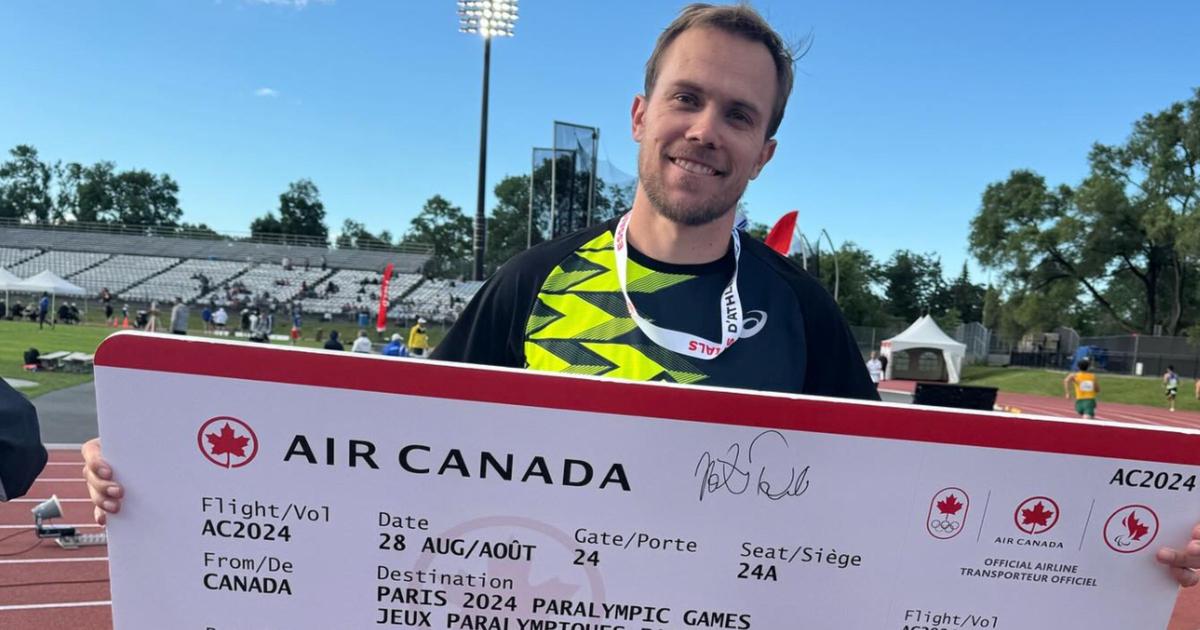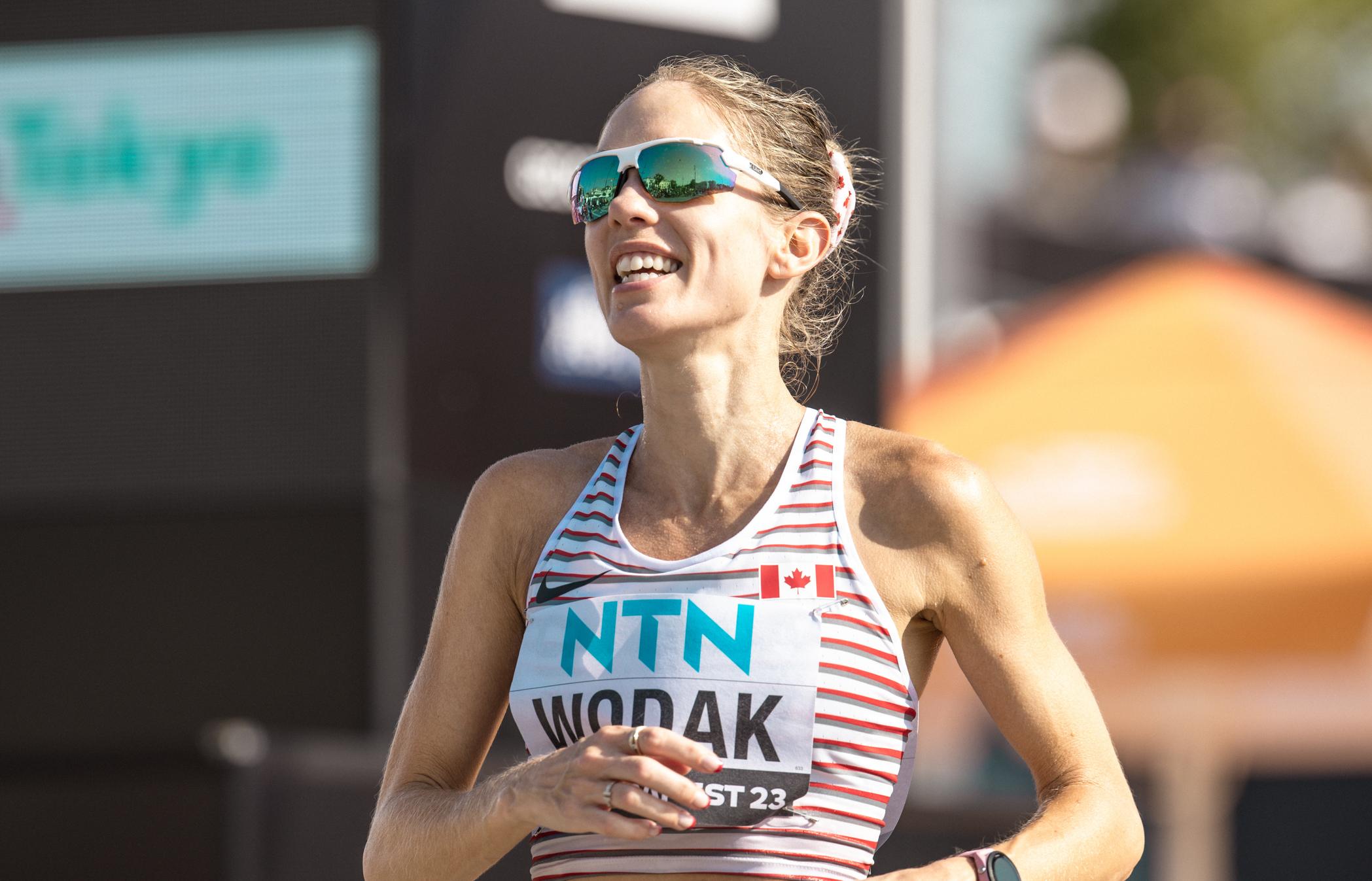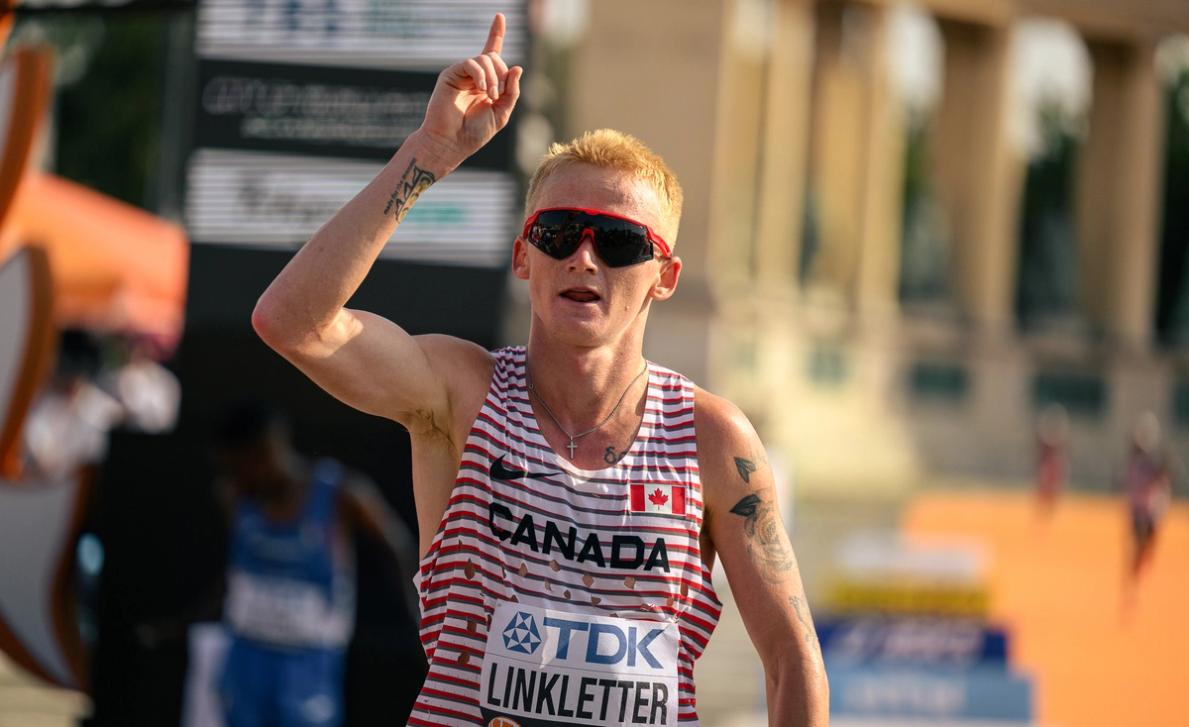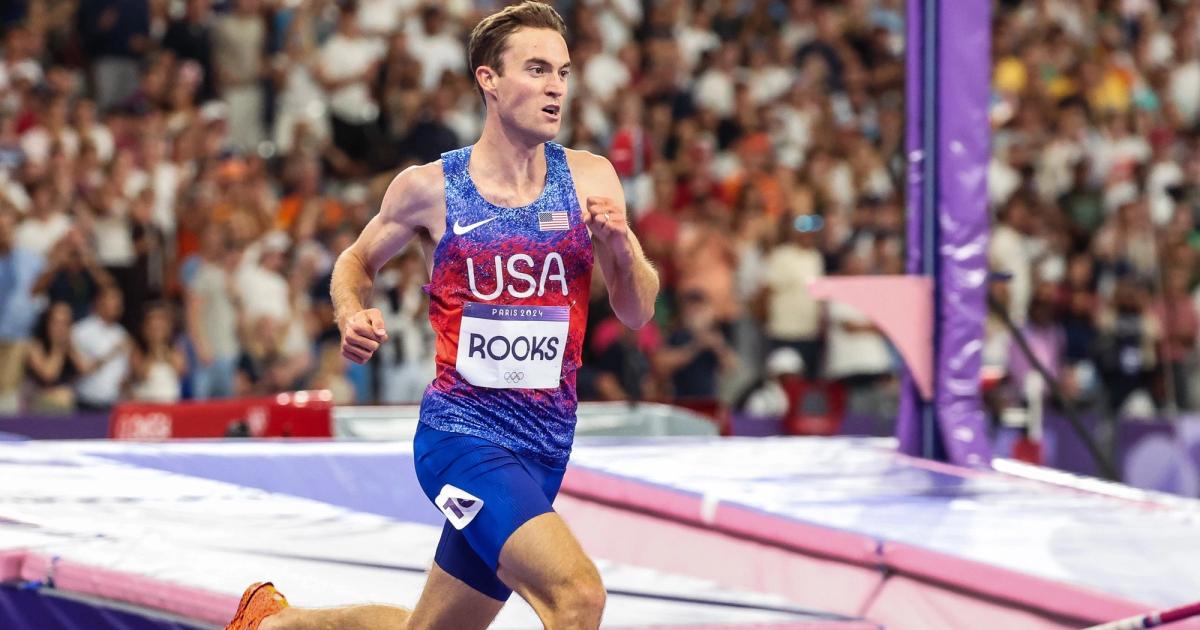September 2, 2024
Listen
"A lot of tears were shed, but I could end up on top of the podium at the Paralympic Games... I was always a really big dreamer, so I decided to take that route. I got out of the hospital on Sunday and went to school on Monday. "
Nate Riech won gold in the T38 category for the 1500m at his first Paralympic Games in Tokyo and is now back to defend his title. He is also an Asics-sponsored pro athlete and won the gold medal at last year’s World Para Athletics Championships in Paris.
In this episode, he shares his career story including the story of when he was 10 years old and an accident on a golf course changed the trajectory of his life. He was diagnosed with a brain injury that affected the right side of his body. He comes from a super athletic family that includes NHL players and Olympians, which only motivated him even more to set out and write his own legacy in the Paralympic movement. He also shares his hopes for carrying the momentum from the Olympic Games to the Paralympics.
Host: Chris Chavez | @chris_j_chavez on Instagram
Guest: Nate Graywolf Riech | @nategraywolf on Instagram
The following excerpt has been edited lightly for clarity. You can listen to the full interview with Nate Riech on the CITIUS MAG Podcast – available on Apple Podcasts, Spotify or wherever you get your shows.
CITIUS MAG: An accident took place when you were ten-years-old. In whatever way you’re most comfortable sharing, familiarize the listeners on what happened and how it ultimately changed your life.
Nate Riech: I was ten-years-old living in Phoenix, Arizona at the time. We went out to play golf. It started off pretty chill… An older group of gentlemen asked to play through. It was July in Arizona, so they were really trying to take care of us. (They said), ‘Why don't you go stand under the tree after you hit your balls so that you'll be in the shade? And then we'll hit our balls…’ I remember hearing him hit (the golf ball) and then all of a sudden I had this numbness, tingling sensation run through my body…
One of my buddies looked at me and said, ‘Nate, you just got hit in the head by a golf ball.’ Right away my right arm fell down, but I was still unsure at that moment… I called my mom and was like, ‘Hey, I got hit by a golf ball.’ She was not believing me at all. She was like, ‘Come on.’ I was pretty dramatic as a kid, I won't lie. She reluctantly came and picked me up. When she saw me, I could squeeze my hand – but my arm, like I said, was pretty jacked up.
She dropped my friends off first and then as we got closer and closer to the Phoenix Children's Hospital, I ended up becoming fully paralyzed on the right side of my body. The moment for her was when she asked me to jump out of the car and run into the emergency room and I couldn't. I was dragging my right leg. She knew at that point something was wrong. I still didn’t.
My moment was when we got back to my room and I started having seizures uncontrollably. I thought I was talking, but I wasn't. I remember my mom just saying to me, ‘Nate, it's going to be really tough, but you're going to be okay.’ At the time, that's not the prognosis they were giving me. Basically, my prognosis was bleak. They thought I would be a vegetable for the rest of my life and that I would probably be in a wheelchair. I can't even imagine how my parents felt.
But for me, the most pivotal moment of my life was when my doctor sat me down as kind of an exit interview from the hospital… He said, ‘Nate, you’re never going to walk without a limp, competitive sports are not in your future, and you're not going to graduate high school. I still get a tingling sensation all over my body just saying it.
For me, I could take this one road that's pretty flat and I won't fail a lot and I'll just listen to him. Or I could take this winding road and I could fail a whole lot. A lot of tears were shed, for sure, but I could end up on top of the podium at the Paralympic Games, or I could achieve something that I'd always dreamed of. I was always a really big dreamer, so I decided to take that route. I got out of the hospital on Sunday and went to school on Monday. It was almost like a new life.
CITIUS MAG: When you got to the hospital and got your prognosis, how bleak was it?
Nate Riech: I mean at one point I thought I was going to die because I had internal bleeding and it was showing no signs of stopping. Thank goodness we played the waiting game, because if they went down to remove the clot, it was like 100% that I was going to be a vegetable for the rest of my life. They were about to go into surgery and they were like, ‘Wait, let's just check it one last time.’ And it just stopped randomly. They wrote medical journals on it. They have no idea why I can run the way I can run or do what I can do. They were like, ‘We've never seen anyone who's had the trauma to your brain like you had and been able to recover the way you have.’
I've been super fortunate and I'm sure there was some help that was above myself that I had during that time. I think that's why I'm so big on giving back and just really speaking for the Paralympic movement. There's so many awesome people like Hunter Woodhall and so many amazing U.S. athletes. I think we're all trying to just do our part little by little. One of the things that motivates me is to do it for those people who weren't able to have that recovery that I had. Hopefully I can run for them in some way.
CITIUS MAG: So you literally had to start from scratch with learning how to walk again. What do you remember about that month at the hospital? For how young and competitive you were, it must’ve been so hard to be thinking, ‘I should be able to do this,’ and then your body just didn't cooperate.
Nate Riech: It was so humbling. (Relearning) walking is still the hardest thing I've ever had to do in my life. I remember just eating it so many times. I was pretty down early on in the hospital because it just sucked. It really did. Thank goodness my mom is an all-time motivator. She did not let me rest on my laurels at all. She really listened to what I wanted to achieve. I said I wanted to go to the Olympics, so she was like, ‘Then we have some work to do.’ She really laid the blueprint for me…’
The second toughest part for me was going back into real life, because I stuttered and stammered so bad I couldn't even get a word out. My teachers were so concerned because I never talked. Every time I'd read out loud, I would get made fun of. I was just not confident at all. I just wanted to be a normal kid. I stuck out like a sore thumb, for sure. I went through some really hard times and running kind of saved my life in some way… It became a passion and I got to run (NCAA) Division one. Then obviously it led me to the Paralympic Games.
CITIUS MAG: What do you think is most different about resources and medical advances available now compared to your experience when you were ten-years-old?
Nate Riech: I think number one, disability and traumatic brain injuries are just openly talked about now. Before, I couldn't have told you one person who had a traumatic brain injury. When they threw around the word ‘TBI,’ I was like, ‘What? I don't even know what that is.’ I think we've just learned so much more about the brain. I’ve learned now that I was really lucky that I was young – my brain wasn't fully wired and there was an opportunity for me to recover. So I think that's super huge.
All the children's hospitals we have through Children's Miracle Network are all amazing, so it's really cool to see those resources grow. As I mentioned before, I used to stutter and stammer all the time. I remember my mom throwing me out on stage after I got hurt because I got resources from those fundraising events. She thought it was really important for me to give back. That was my biggest fear. Like, ‘Why would you put me on stage?’ Then it ended up becoming one of my biggest passions.
I do some stuff for Asics sometimes when it comes to public speaking. It's funny the way that's gone. Even if you look at our classification; in 2018, I broke the world record and it was 4:02. Now I've run 3:47, but also there's no one in the field this year, I believe, that has run under four. It's crazy that was the standard and now the standard is just so much higher.
CITIUS MAG: How confident are you with how training has been going and what are your goals for the 2024 Paralympics?
Nate Riech: My goal is to win. That's the only thing that's on my mind to be honest with you. The competition is really good. I've run the second-fastest (1500m) this year. One of the Australians ran 3:51 last week, so that'll make things really exciting. This is the first time I've ever gone into a major championship not being number one in the world, so that'll add things for sure. But the last three weeks, I've probably had the best training in my career. All of a sudden everything's feeling pretty easy. It’s nice when that happens, because that’s not usually how it works out…
I'm feeling really strong and really confident. I'm very confident if it goes fast or if it goes slow that I'm able to win. Everyone always thought I didn't have a good kick because I always went out really hard. Then last year, I decided that I wanted to prove that I have a good kick so I waited until 100 meters to go and gapped them pretty good in the last one hundred meters. So I'm confident that it'll go my way. But also, nothing's guaranteed. I know there's an opportunity for it to not go my way.
Time Stamps:
- 5:37 - His experience at this year’s Canadian Championships.
- 8:46 - What it was like growing up in a family of elite athletes.
- 11:24 - His story on becoming paralyzed from a traumatic brain injury.
- 16:59 - Relearning to walk and speak following the incident.
- 21:20 - Breaking down Paralympics classifications.
- 24:31 - His training progression after graduating college.
- 25:40 - Pro contracts for Para athletes vs. able-bodied athletes.
- 29:41 - Role models that he looks up to.
- 30:52 - Using double threshold training.
- 32:18 - How he trains compared to able-bodied runners.
- 33:57 - His recovery process compared to able-bodied runners.
- 36:24 - Goals heading into the Paralympics.
- 38:33 - What’s next for him + how to follow along his journey.
___________________
Keep up with all things track and field by following us across Instagram, X, and YouTube. Catch the latest episodes of the CITIUS MAG Podcast on Spotify and Apple Podcasts. For more, subscribe to The Lap Count and CITIUS MAG Newsletter for the top running news delivered straight to your inbox.
Support The Sponsor

ASICS
It’s no surprise that many of Asics’ top athletes have been racing in the MetaSpeed Edge and MetaSpeed Sky. They're both lightweight, responsive, and built to help you fly. Head over to Asics.com and check them out because your next PR may be a few clicks away.

OLIPOP
For the past year, we’ve redefined Olipop as more than just a healthy drink known for its gut microbiome with a low sugar content and a much better alternative to regular soda. You know there are more than 16 flavors, including classic root beer, cherry cola, and lemon-lime. You know it as The Runner’s Soda. Get 25% off your orders by using code CITIUS25 at drinkolipop.com.
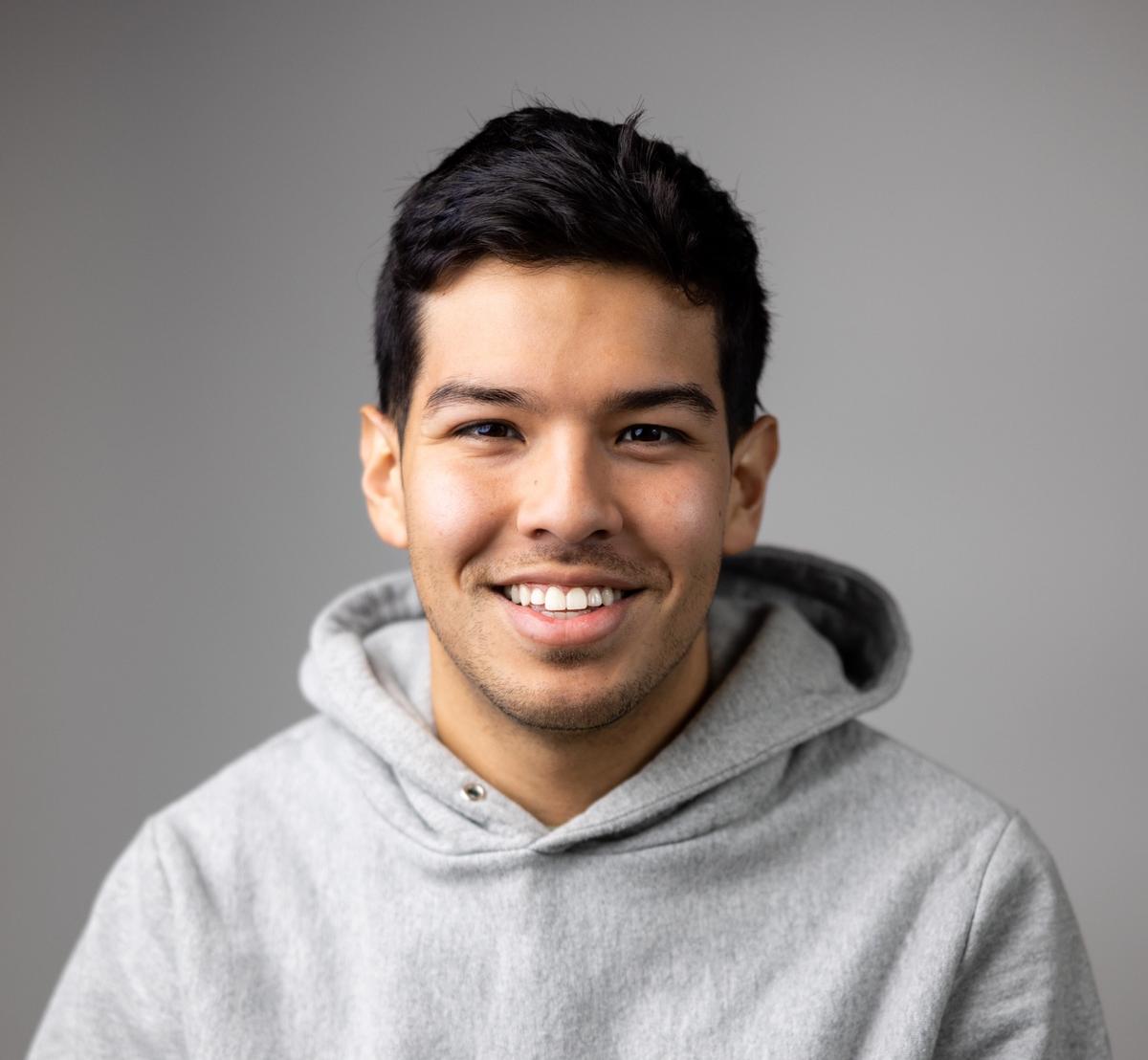
Chris Chavez
Chris Chavez launched CITIUS MAG in 2016 as a passion project while working full-time for Sports Illustrated. He covered the 2016 Olympics in Rio de Janeiro and grew his humble blog into a multi-pronged media company. He completed all six World Marathon Majors and on Feb. 15th, 2025 finally broke five minutes for the mile.
